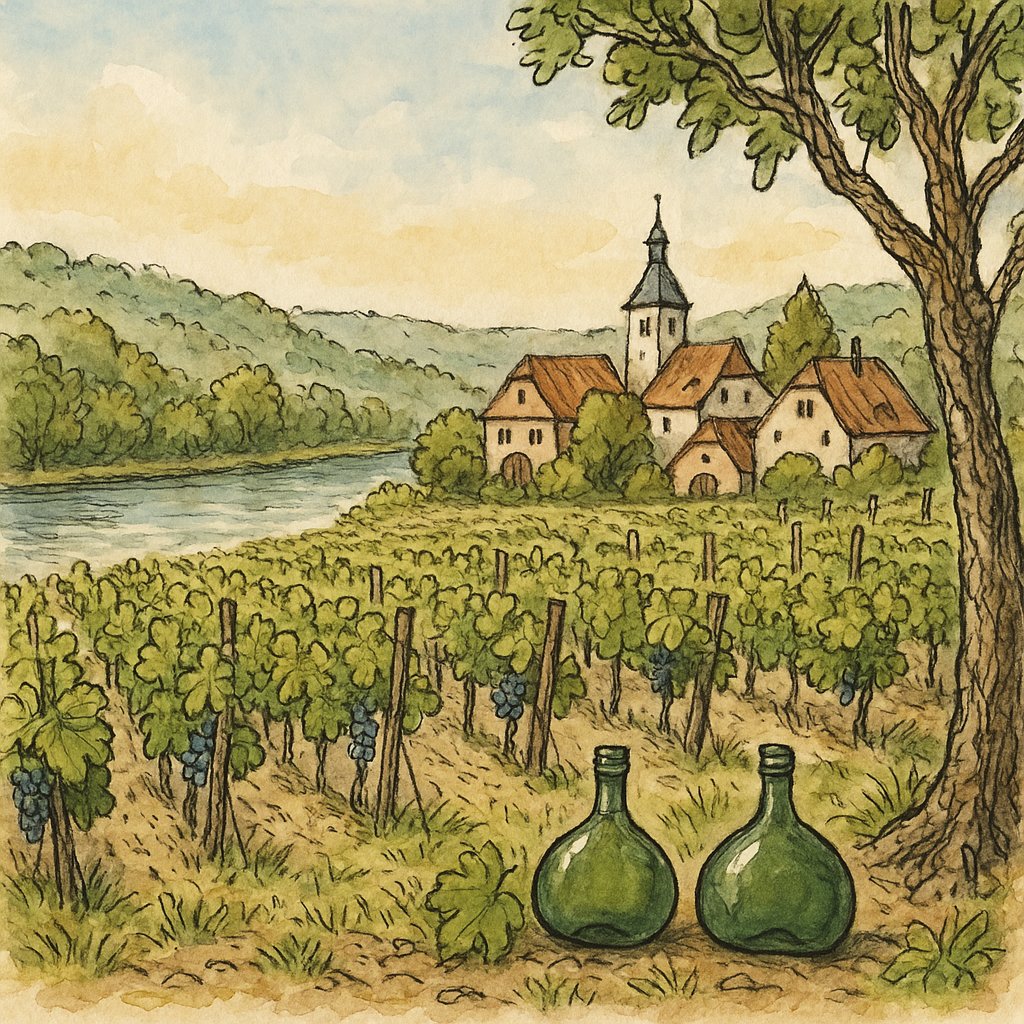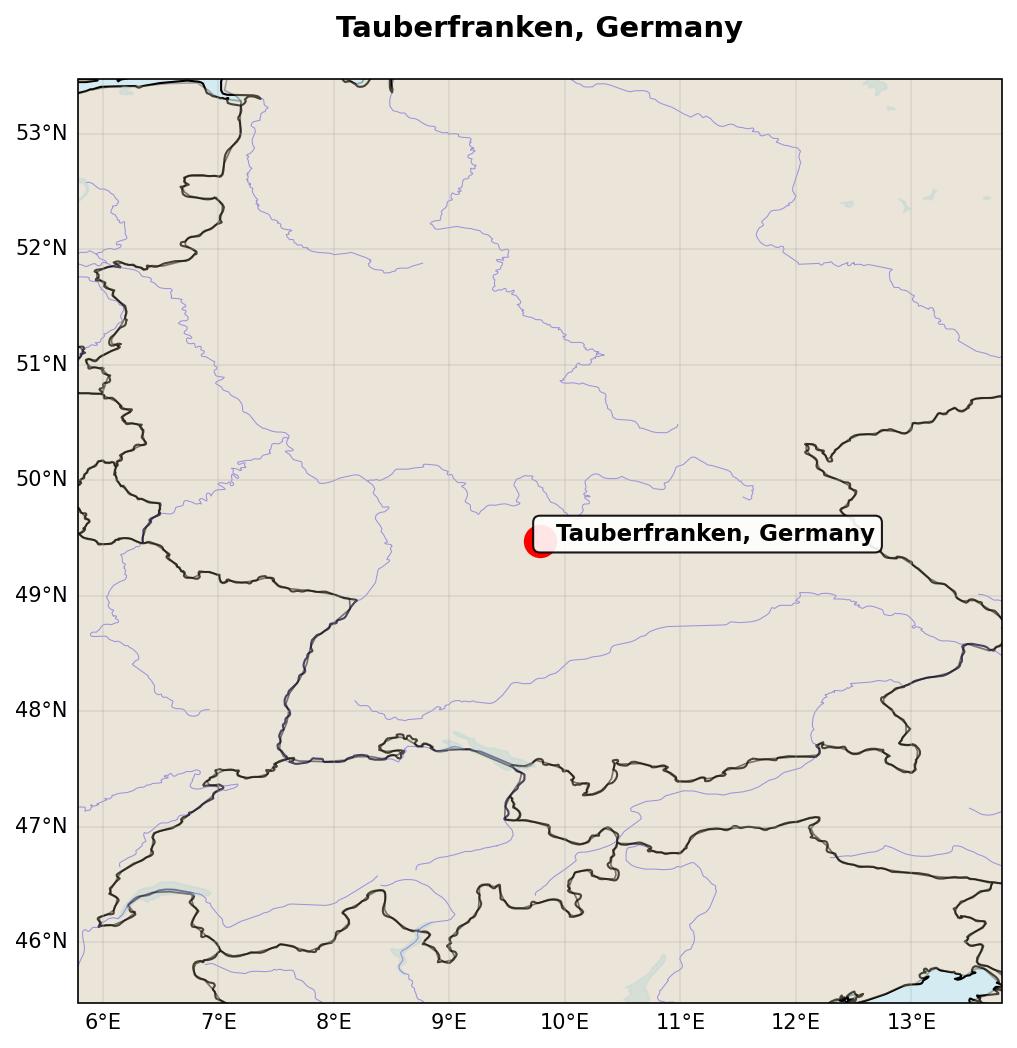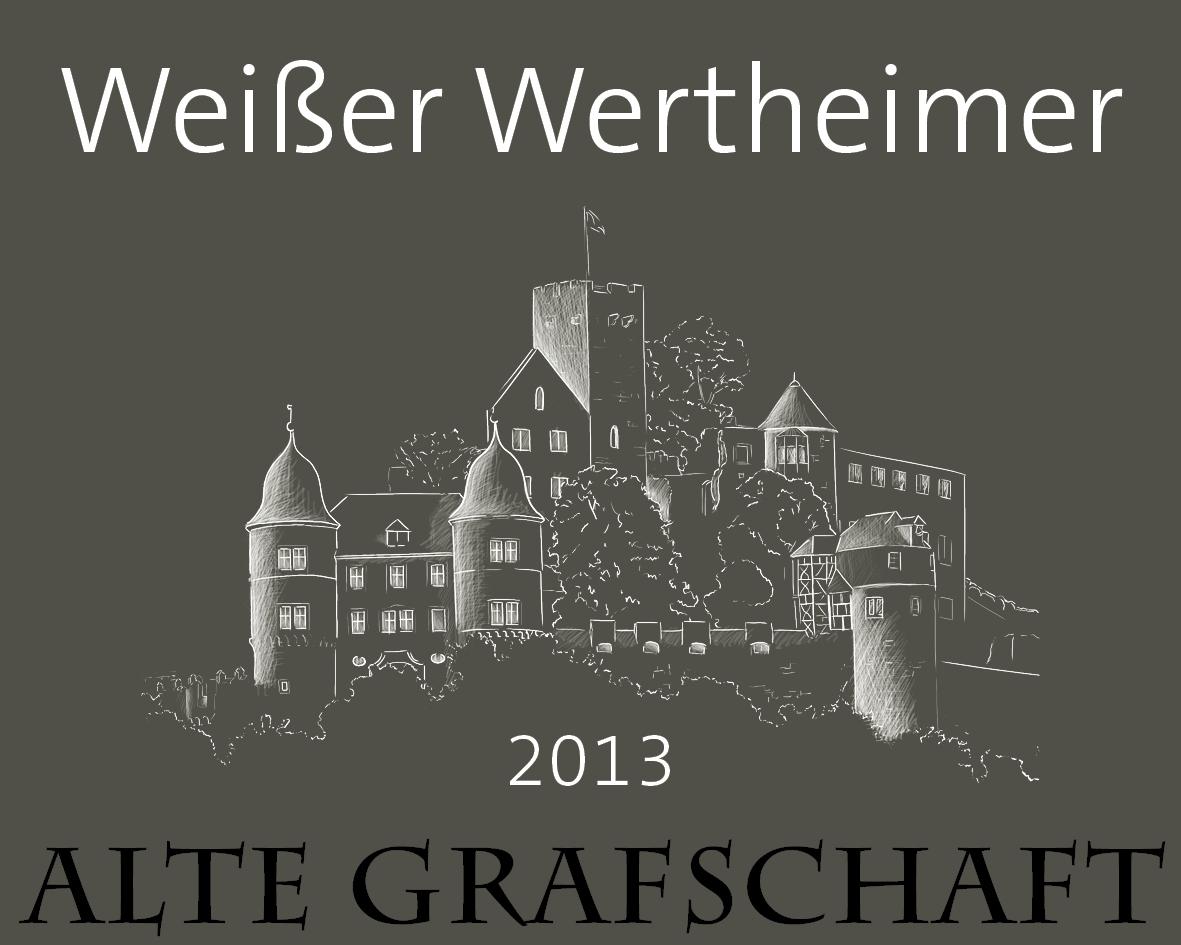Terroir of Tauberfranken
Tauberfranken's unique land features Triassic Muschelkalk, a limestone rich in minerals, with loamy brown earth and red sandstone. These shallow, well-draining soils are perfect for wines with bright acidity and mineral notes. In some places, fertile loess provides deeper soil for better vine growth.
Located at the northern edge of Baden, the region's climate is influenced by both continental and Atlantic factors. Summers are warm and sunny, while spring and autumn bring frost risks, so vineyards are often found on mid or upper slopes. Rainfall is moderate, with a rain shadow effect causing drier summers. The cool to moderate climate is ideal for vibrant white wines and allows red varieties like Pinot Noir to thrive in warmer areas, showcasing the region's potential for quality reds.
Notable Wineries in Tauberfranken
Tauberfranken, a hidden gem in the northernmost part of Baden, Germany, is distinguished by its blend of small family vineyards and cooperative efforts. Here, wine enthusiasts can discover unique producers making their mark:
- Becksteiner Winzer eG: A remarkable cooperative in Beckstein, pooling grapes from Lauda to Kirchberg, offering a variety from Müller-Thurgau to Pinot Noir.
- Weingut Johann August Sack: Located in Lauda-Königshofen, this family vineyard excels with Riesling and Pinot Noir, embracing low-intervention methods.
- Schloss Bronnbach: Situated in a former Cistercian abbey, it hosts a vinothek and tastings in historic cellars, marrying monastic history with modern viticulture.
- Weingut Schlör: Located in Reicholzheim, it is known for its limestone slopes, producing exceptional Pinot Gris, Pinot Blanc, and Spätburgunder.
Sustainable Winemaking in Tauberfranken
In Tauberfranken, sustainability is taking root as growers adopt eco-friendly practices across their vineyards. Embracing organic and integrated methods, many are using cover crops and reducing herbicides to maintain the health of their limestone-rich soils. Precision viticulture is on the rise, with a focus on targeted canopy work and hand harvesting, particularly on steep, rocky terrains.
Larger cellars and cooperatives are investing in energy-efficient equipment and heat recovery systems to reduce emissions. Biodiversity is encouraged with hedgerows, nesting boxes, and insect habitats. Water use is carefully managed, with limited irrigation where permitted, and there is a trend towards using lighter glass and sustainable packaging. While the region lacks a unified sustainability label, these efforts reflect a growing commitment to low-impact, environmentally conscious winemaking.
Wine Tourism in Tauberfranken
Tauberfranken is a captivating destination for wine tourism, nestled in Germany's picturesque Tauber Valley. The region's 204-kilometer Wine Route offers a scenic journey through charming half-timbered towns and lush vineyards.
Visitors can explore historic sites like Bronnbach Abbey and the Deutschordensschloss in Bad Mergentheim, which frequently host wine exhibitions and tastings. This area is renowned for its family-run vineyards and cooperatives producing exquisite white wines, with an increasing focus on reds like Pinot Noir.
The well-marked trails cater to cyclists and hikers, providing educational panels about local geology and viticulture. Summer and early fall bring lively harvest festivals and cozy village tastings, showcasing the region's vibrant wine culture.
Tauberfranken's mix of lush landscapes and medieval architecture makes it a hidden gem for wine enthusiasts seeking an authentic and enriching experience.



